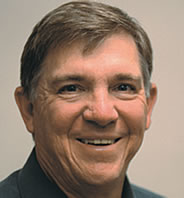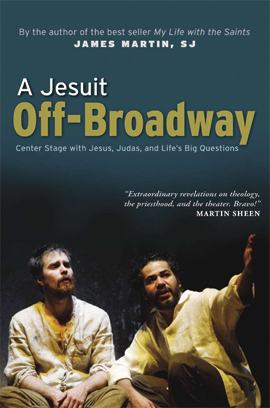
'The Shack,'
by Wm. Paul Young
Wm. Paul Young had me for 178 pages.
Through 178 pages the author of this New York Times bestseller offered a creative approach to teaching readers about all kinds of elements of Christian faith.
In the paperback version of this "catechism-as-dramatic-novel/fantasy," the first 178 pages are a painless way to be forced to think about our -- yours and mine -- relationship with God.
Through a hurting father's meeting with the triune God, the first 178 pages of "The Shack" present convincing explanations about the concept of free will, unconditional love, good and evil, human frailties, the Trinity and more.
For 178 pages Young, the child of missionary parents, makes us reflect about our image and understanding of God, reinforcing the idea that God is always with us, always loves us, even as we stumble and fall.
Then comes page 179.
Religion one of 'trinity of terrors'?
That's where Young's Jesus starts a diatribe against organized religion, using the kind of language Catholics used to see only in the hate pamphlets that carried drawings of the pope as the devil -- horns and tail included.
The character of Jesus who inhabits Young's fanciful "shack" says he's "not too big on religion," and lumps religion in with politics and economics in a way most Christians would describe as, well, unchristian.
Religion, politics and economics, this Jesus claims, "are the man-created trinity of terrors that ravages the earth and deceives those I care about. What mental turmoil and anxiety does any human face that is not related to one of those three?"
But there's more.
Young's Jesus says, "Put simply, these terrors are tools that many use to prop up their illusions of security and control. People are afraid of uncertainty, afraid of the future. These institutions, these structures and ideologies, are all a vain effort to create some sense of certainty and security where there isn't any. It's all false!"
But wait, there's more.
Two pages later it is all the world's systems that are the problem. Jesus of "The Shack" says,
"Institutions, systems, ideologies, and all the vain, futile efforts of humanity that go with them are everywhere, and interaction with all of it is unavoidable. But I can give you freedom to overcome any system of power in which you find yourself, be it religious, economic, social, or political. You will grow in the freedom to be inside or outside all kinds of systems and to move freely between and among them. Together, you and I can be in it and not of it."
So, none of what humanity -- created in the image and likeness of God -- has developed through the centuries does any good? It's "well-intentioned" but evil? Hard to believe. And, if you're like me, those last couple of sentences in the quote above sound similar to the Catholic Church's advice that its members are to be counter cultural, in the world but not of it, part of society but not caught up in its less noble pursuits. But you don't hear Young's Jesus acknowledging that.
Now who's being judgmental?
Perhaps the attack on organized religion wouldn't come off as so hypocritical if it hadn't come after a whole chapter in which Mackenzie -- the book's main character -- goes through an agonizing trial that teaches him not to be judgmental.
Far be it for any Catholic to ignore the failings of our church -- its members and its leaders -- throughout history and even to the present day. But any author does readers an enormous disservice by ignoring the positive motives, positive actions and positive results that organized religions have brought to the world throughout history and continue to bring today.
Our churches -- of many denominations -- deserve credit for upholding moral standards that easily go by the wayside in a laissez-faire society.
The Catholic Church in particular has earned the admiration of many for creating the concept of higher education.
People -- organized through their church affiliations -- feed the hungry, care for the sick, shelter the homeless -- in a better way when they do so in organized ways.
The list could go on. Sadly, Wm. Paul Young has chosen to ignore the good and instead judge others in a way he tells his readers not to.
Sad, too, is that it took 179 pages for him to show his true colors. -- bz



2 comments:
I was set not to like the book, The Shack but after reading it, I thought it was really good and thought provoking. All the time I read it, I kept thinking it needs a study to go along with it. I finally decided God was urging me to write a study which I did. If anyone would like it, email me at prayerdigm.bookstudy@yahoo.com. I would be glad to send you the study. You are welcome to use it and copy it for others.
Trish Pickard
My wife and my mom (all Catholic) prooded me to read this book. I am not much for fiction although I have to say that I was immediatly engaged in the story and imagery of this book. Red flags were raised in certain areas of theology throughout the book which I was willing to overlook in order to continue to the end of the book. That is untill I reached the point in chapter 12 when the jesus character began describing how he felt about religions and institutions. I pray that those who are not well founded in their faith do not adopt the perspective advanced by the storyline in this book. It seems very new age and anything goes. This seems to add to the moral relativism that muddies the water on who God is and which pushes our modern society to more anti-Catholicism.
My advise is to warn people away from this book.
Post a Comment